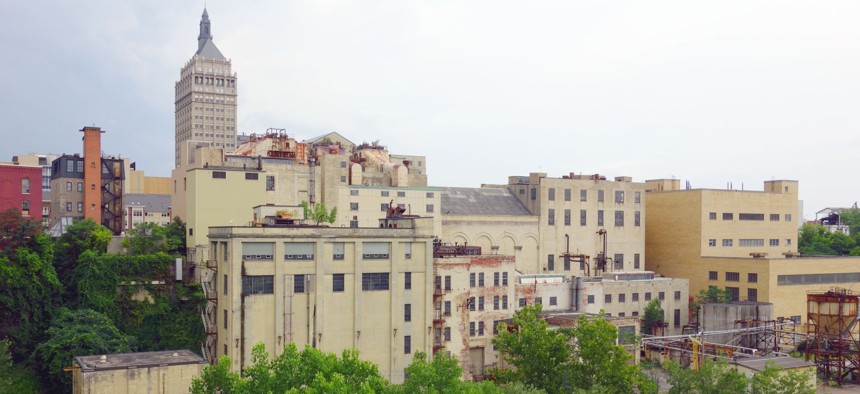The Poverty Argument Against Red-Light Cameras

Rochester, New York Shutterstock

Connecting state and local government leaders
Rochester, N.Y., Mayor Lovely Warren: "I cannot, in good conscience, wage a fight against poverty while also imposing burdensome fines.”
The mayor of Rochester, New York, on Thursday announced that she’ll introduce legislation that would shutter the city’s red-light camera traffic enforcement program by the end of the year.
One of the reasons to pull the plug that was cited by Mayor Lovely Warren isn’t often heard in the wide-ranging local government debate over automated traffic enforcement: Violations recorded by the red-light cameras can disproportionately impact areas with higher rates of poverty.
In Rochester, a study commissioned by the city found that there were more total red light violations in five ZIP codes that had the city’s highest rates of poverty.
“I am particularly concerned that too many of these tickets have been issued to people who can least afford to pay them, which is counterproductive to our efforts to reverse our city’s troubling rates of poverty,” Warren said in a statement. “I cannot, in good conscience, wage a fight against poverty while also imposing burdensome fines that that have a disproportionate impact on people living in poverty. That just doesn’t make sense.”
It’s an argument that is sometimes lost in the usual debate over automated traffic enforcement. But the impacts can be incredibly burdensome.
In the San Francisco Bay Area, getting a traffic ticket can hit the working poor especially hard and lead to a downward spiral that can be difficult to escape from.
As the East Bay Express wrote in May 2015:
Statewide data that Bay Area legal aid and civil rights organizations recently compiled and analyzed — along with detailed accounts from people saddled with insurmountable traffic violation debts — demonstrate that municipal courts and aggressive debt collectors in California routinely trap low-income people in poverty with exorbitant fines. Minor traffic offenses that once cost $100 now cost roughly $500, which people living paycheck to paycheck can't afford.
The legislation Warren introduced is scheduled to be heard by the Rochester City Council on Dec. 20 and if approved, the city’s contract with Redflex Traffic Systems Inc. would be terminated effective Dec. 31.
Rochester launched its red-light camera program in 2010 and there are currently 48 cameras at 32 intersections, according to the Democrat & Chronicle.
While there’s plenty of research on automated traffic enforcement that that show positive impacts on safety, red-light and speed-camera programs remain highly controversial.
Opponents often accuse municipal governments of deploying red-light and speed cameras mainly for revenue generation purposes and use safety benefits simply as a selling point or way to justify their use. Opponents also point to contractor scandals involving red-light programs, like the one that have generated plenty of headlines in Chicago.
But traffic safety advocates tout their benefits and point to research that show major consequences for cities that turn their cameras off.
According to the Democrat & Chronicle:
The Insurance Institute says flipping the switch on the program will likely cost lives. According to their studies, cities that ran with red-light cameras between 2010 and 2014 saw a 21 percent drop in the number of fatal red-light-running crashes, while those that turned their systems off saw a 30 percent increase.
David Goldenberg, a spokesman with the Traffic Safety Coalition, said there's no question data shows red-light cameras make intersections safer.
"The data is absolutely conclusive that cameras made Rochester roads safer and data from around the country shows that red-light running crashes, injuries and even deaths per capita go up when the cameras get turned off," he said.
In Rochester, the city’s study found mixed results when it came to traffic safety improvements. With automated enforcement, from 2013 to 2015, some intersections with red light cameras saw more violations, some saw fewer violations and most others stayed roughly the same, according to the mayor’s office.
Michael Grass is Executive Editor of Government Executive’s Route Fifty and is based in Seattle.

NEXT STORY: A Year Into Hawaii’s Push to Go Paperless





